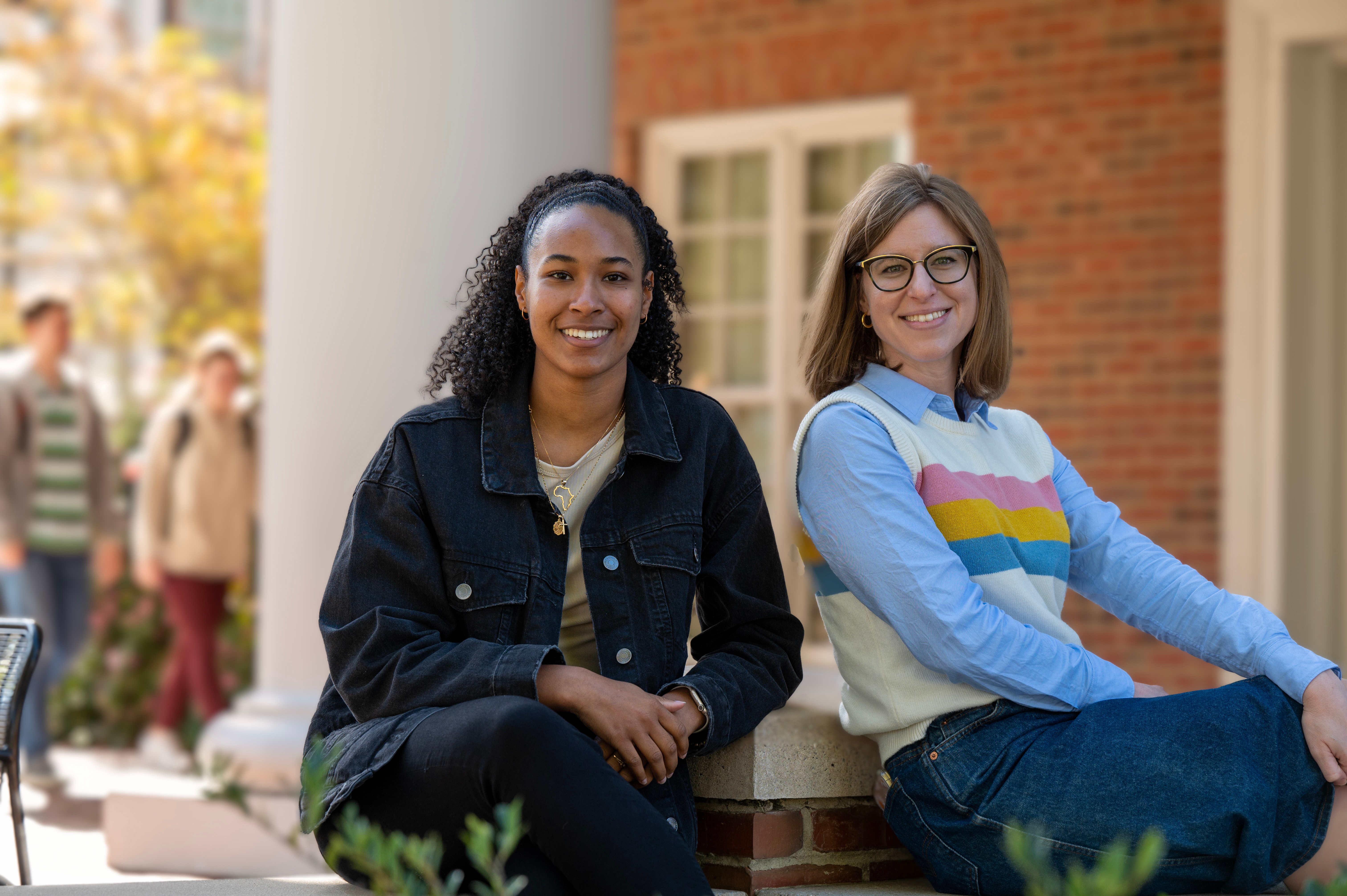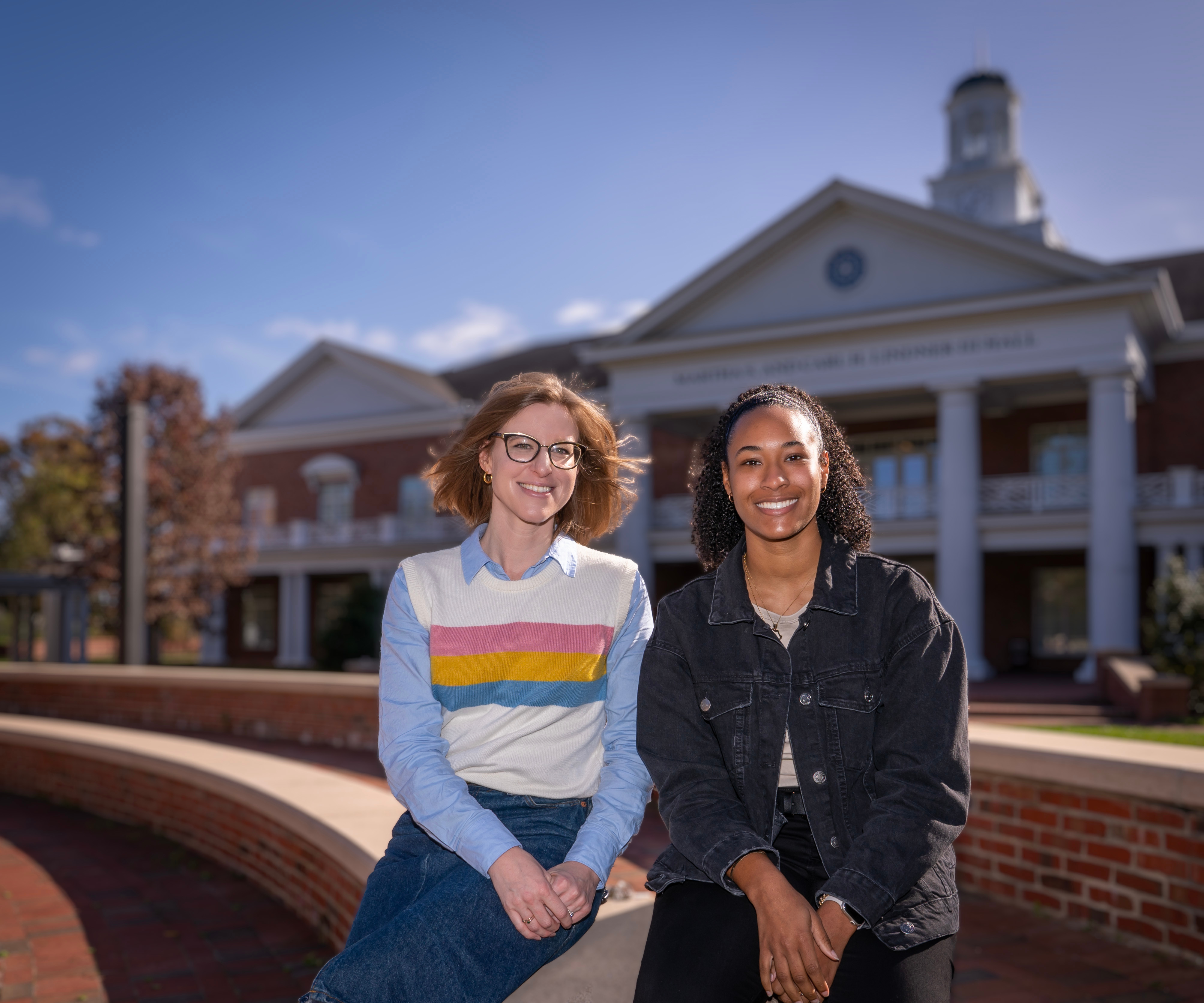Gaines, a political science and policy studies major, along with her mentor Assistant Professor Dillan Bono-Lunn are working to dissecting the mechanics of policies through Intersectionality Policy Process Analysis to advocate for a more inclusive, identity-informed policymaking process.
Students like Amaya Gaines ‘23 epitomize undergraduate research at Elon. A recipient of the Lumen Prize, the university’s most prestigious undergraduate research award, Gaines is examining anti-poverty policy through an intersectional lens.
“My research is essentially looking at the presence of intersectionality — or the lack thereof – in the policy process that led up to us having Temporary Assistance for Needy Families (TANF),” Gaines said. “When we talk about intersectionality, we mean what are the ways that someone’s layered identity — particularly, gender, race, and class — impact not only their lived experience of poverty but also TANF as the policy solution to poverty.”
Working with faculty mentor Assistant Professor of Political Science and Policy Studies Dillan Bono-Lunn, Gaines is comparing how six states implement TANF grants and how identity is weaponized in these funding decisions with her project, “Policy Solutions Waiting to Be Seen: Applying Intersectionality Policy Process Analysis to State Anti-Poverty Program.”
“We’re dissecting the mechanics of a policy and using this interesting framework, Intersectionality Policy Process Analysis, which is pretty recent to advocate for a more inclusive, identity-informed policymaking process,” Gaines said.
The Lumen Prize awards scholars a $20,000 scholarship to support a chosen research project and allows them to work closely with a faculty mentor on that project for two years. Each year, 15 rising juniors are named Lumen Scholars and conduct research that often produces conference presentations and publications.
Gaines first became interested in applying the intersectional lens beyond the law, the discipline from which it originates, during her senior year of high school when she completed an AP capstone project on disciplinary disparities in her high school in Guilford County, N.C. Her interest in public policy naturally evolved once she arrived at Elon.
“Public policy serves as this perfect field where I can look at things from multiple perspectives,” she said. After completing an introductory public policy course with Bono-Lunn, everything fell into place, and a Lumen-worthy project was born.

“We both have a lot of common policy interests, specifically around social safety nets, so it sort of grew organically from there,” Bono-Lunn said. As a first-year professor at Elon in 2020, Bono-Lunn was immediately impressed with Gaines’ skills as an academic.
“Amaya is really adept at speaking publicly and facilitating conversations around policy in a way that is surprising for an undergraduate student,” she said. “She’s really a natural instructor.”
Gaines’ initial interest in the Lumen Prize is thanks to President Emeritus Leo M. Lambert and Associate Professor of Education Mark Enfield. Both professors saw the potential in her as a first-year student and recommended she pursue Lumen.
Three years later, Gaines has maximized her Lumen experience to enrich herself as an academic. Immediately after being selected in the spring of 2021, Gaines attended two summer policy programs – the Pre-Law Undergraduate Scholars Program at the University of Oregon School of Law and the North Carolina Summer Policy Institute.
This past summer, she was a Public Policy and International Affairs Junior Summer Institute Fellow at the University of Michigan Gerald R. Ford School Public Policy, where she was introduced to graduate research and academia. She will also be presenting her research on the Intersectionality and Critical Race Theory in Public Policy panel at the Association for Public Policy Analysis and Management Fall Conference in November.
This semester, Gaines and Bono-Lunn collaborated to create the PST 3700 course, a student-run public policy thinks tank. In addition to teaching students how to write and analyze policy, the work is published in a high-quality but accessible form.
After completing her undergraduate degree, Gaines intends to continue her research and pursue a career or graduate degree in public policy. Her interest in careers and graduate study in public policy is thanks to her Lumen scholarship.
“Whether you anticipate it or not it’s going to touch other parts of your life, like your personal and professional development,” Gaines said. “Lumen served as a springboard to finding these programs. It’s pretty amazing to see … all these different things that I wouldn’t have necessarily had if I weren’t a Lumen Scholar.”



